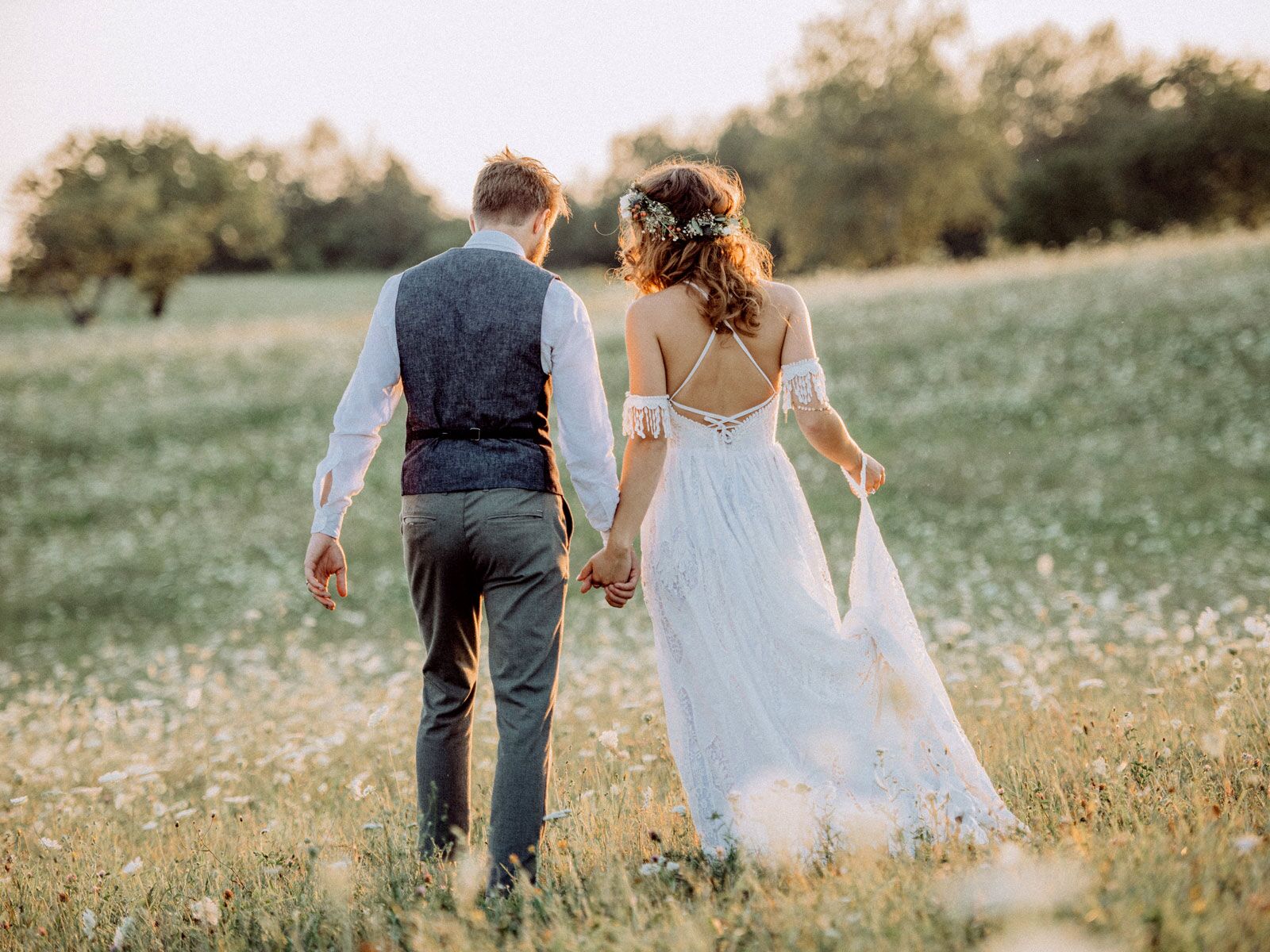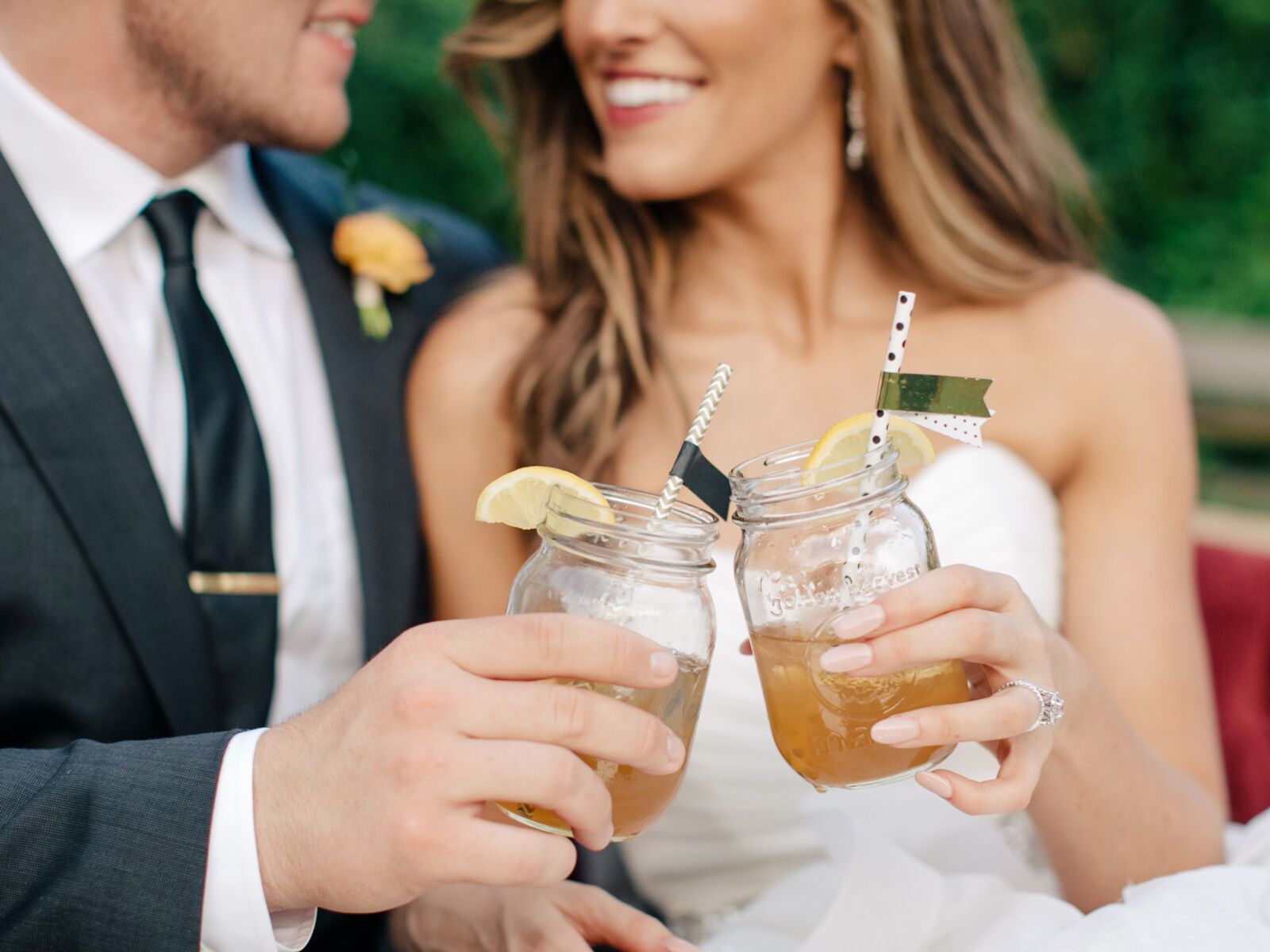What to Look For in Your Wedding Photography Contract

Wedding photography has come a long way in the past decade. Now, couples can search The Knot Vendor Marketplace for various styles—from documentary to fine art—to find the right professional photographer for their big day. When you're narrowing down your selections, you will probably see a preview of the wedding photography contract before hiring them.
You may be tempted to skim over the fine print since you're eager to book them and get started, but it's vital to ensure you know exactly what you're signing. We spoke with Leah Weinberg, lawyer, co-founder and partner at Oduberg Law, LLP, for her best advice:
1. Statement of Work
Though you may not understand all of the 'lawyers speak', it should be easy to understand exactly what you're receiving. Though all contracts will vary, generally speaking, Weinberg says these items are usually part of the statement of work (SOW):
- How many hours of coverage you're getting
- How many photographers will be at the wedding
- Any albums you may be purchasing
- Whether or not an engagement session is included for the photographer's fee
When deciding on the best package for your wedding day, Weinberg says it's worth triple-checking this description of services to ensure that you're getting exactly what you think you're getting.
2. Timeline
When you're basking in that newlywed glow, enjoying your honeymoon, seeing photos your friends post from your big day is enough to tide you over. And maybe some sneak peeks, since photographers are starting to provide these quickly after a wedding. But once you're back home and into your routine, you'll likely start to feel anxious about receiving your photos. After all, it's a once-in-a-lifetime event, so you want to ensure it was captured as you envisioned and hoped.
This is why Weinberg says one of the most critical provisions in the contract with your photographer is when you will receive your photos after the wedding. Along with having a unique style, every photographer will have a different turnaround time, so there isn't a standard for the industry. However, whatever your photographer's deadline for delivery is, it needs to be in your contract.



Weinberg recommends pushing back on your photographer for a directly stated period like "12 weeks" and not "approximately 12 weeks" or "10-12 weeks." "Those alternate phrasings have legal consequences and aren't as clear as one specific period," she says.
3. Rights & Ownership
Your wedding photos are yours—but they are also the art of your photographer. And as such, Weinberg, it is standard for your photographer to retain copyright ownership of your wedding photos. That said, your photography contract should state how you are permitted to use the photos in the future.
"Generally, you should be allowed to share them with friends and family or on social media with a credit to the photographer, but you may not be permitted to use photos in a newspaper announcement or in a publication or on another business' website or social media without the photographer's permission," she says. "You don't risk getting into trouble later on, so if there's something special or unusual you want to use the photos for, consider getting that permission up front in the contract."
4. The Editing Process
Again, you likely hired your photographer because you were impressed and related to their online portfolio. When you're interviewing potential photographers and especially when you're signing the contract, Weinberg says it's essential to make sure you understand what type of editing your photographer does as part of their general delivery process and what type of editing might cost you extra. Then, push them to put it in the contract.
"Many photographers receive requests post-wedding for retouching of wedding photos that fall outside of the scope of what the photographer usually does," she says. "Yes, they are going to edit out exit signs without you having to ask and will probably whiten everyone's teeth, but editing our wrinkles in attire or photoshopping a family member into a portrait will likely cost you extra. But again, it's important to know that going into the relationship, which is why it should be clear in your contract."




















